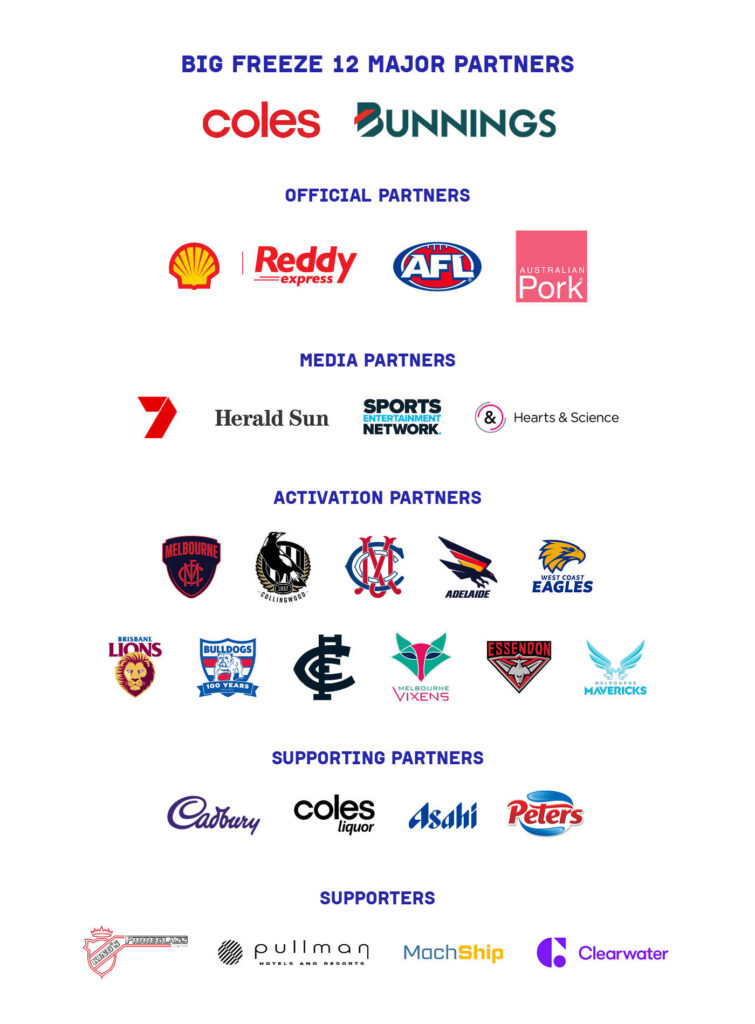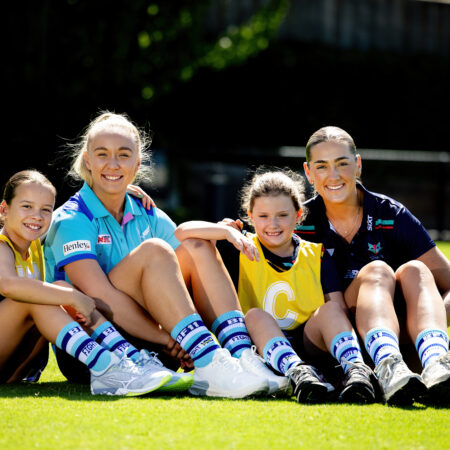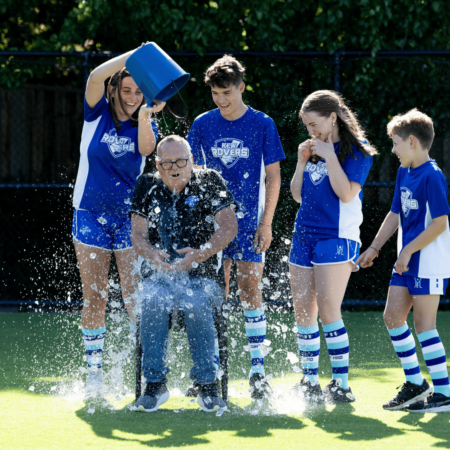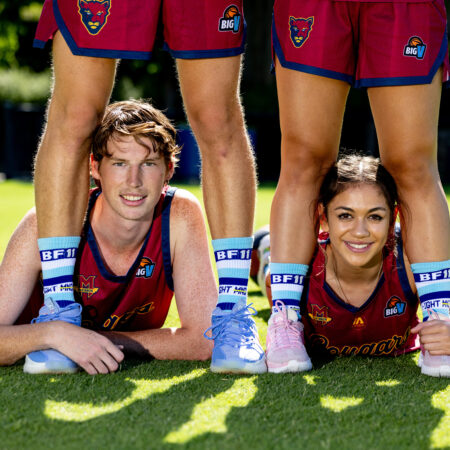It’s almost time again to freeze the nation, our signal to the world that the fight to find a cure for MND is on. Stay tuned for another iconic new Beanie design reveal as we march towards Big Freeze at the MCG on King’s Birthday.
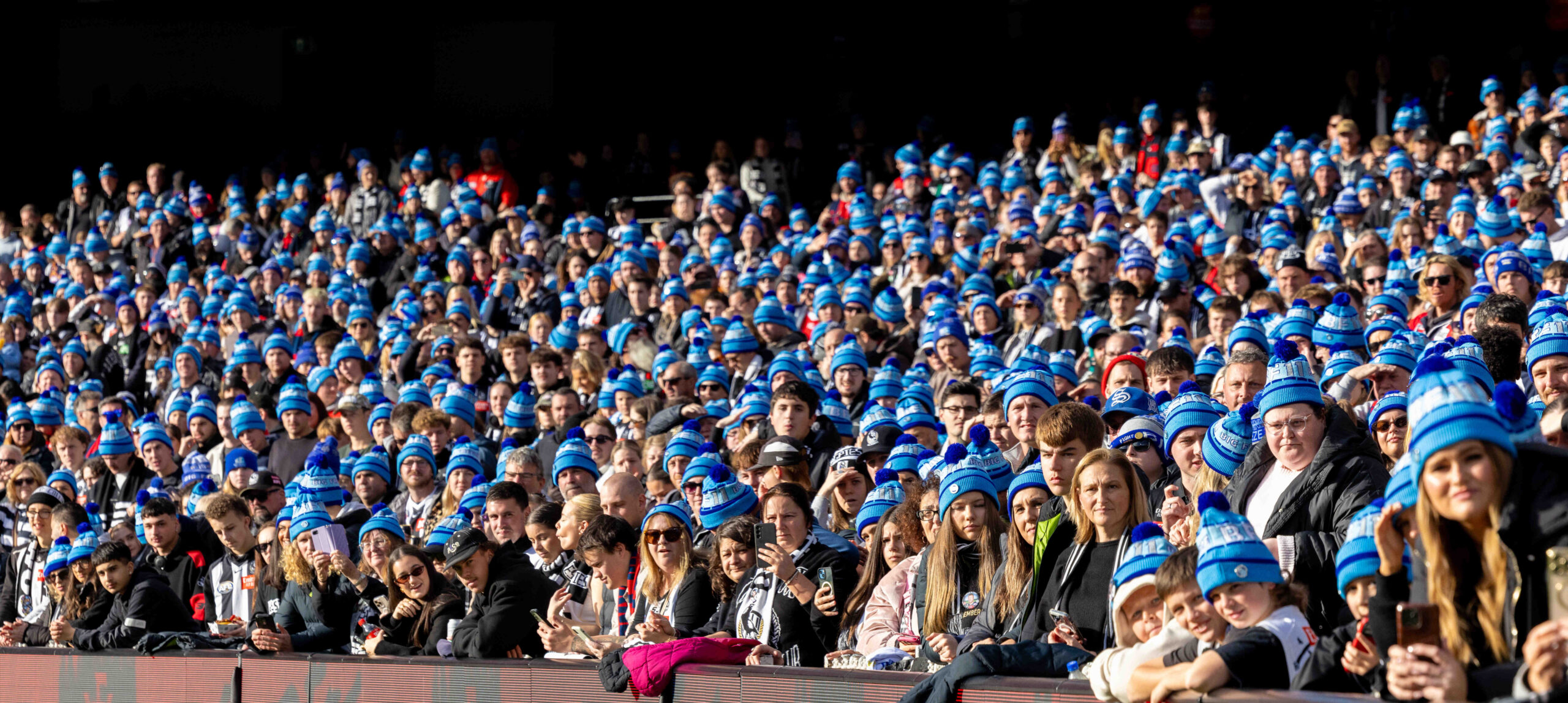
Big Freeze 12 coming soon…
About the Big Freeze
The Big Freeze is FightMND’s largest fundraising campaign, raising awareness and vital funds for MND research and projects supporting those living with MND
On Monday 8 June 2026, the MCG will be flooded with blue Beanies as brave celebrities take the plunge into Australia’s coldest ice bath ahead of the Collingwood vs Melbourne King’s Birthday clash. And we’re not stopping there! We’re freezing the nation with State Freeze events!
A football game is all about competition between two opposing sides. When it comes to the fight against the Beast, the Big Freeze shows that we’re all on the same team, united in our goal of a world without MND.
Want to get involved? Register your interest to become a Big Freeze volunteer!
Big Freeze in your Community
For years our amazing FightMND supporters have shown the collective power of community and daring to do in the fight against the Beast. And in 2026 you can be a part of it.
Whether it’s hosting a DIY Freeze, a friendly competition with your mates, participating in a community round or just wearing the iconic Big Freeze 12 Socks, every action counts in this vital fight. Every event and every gesture, no matter how big or small, helps us move closer to a future without MND.
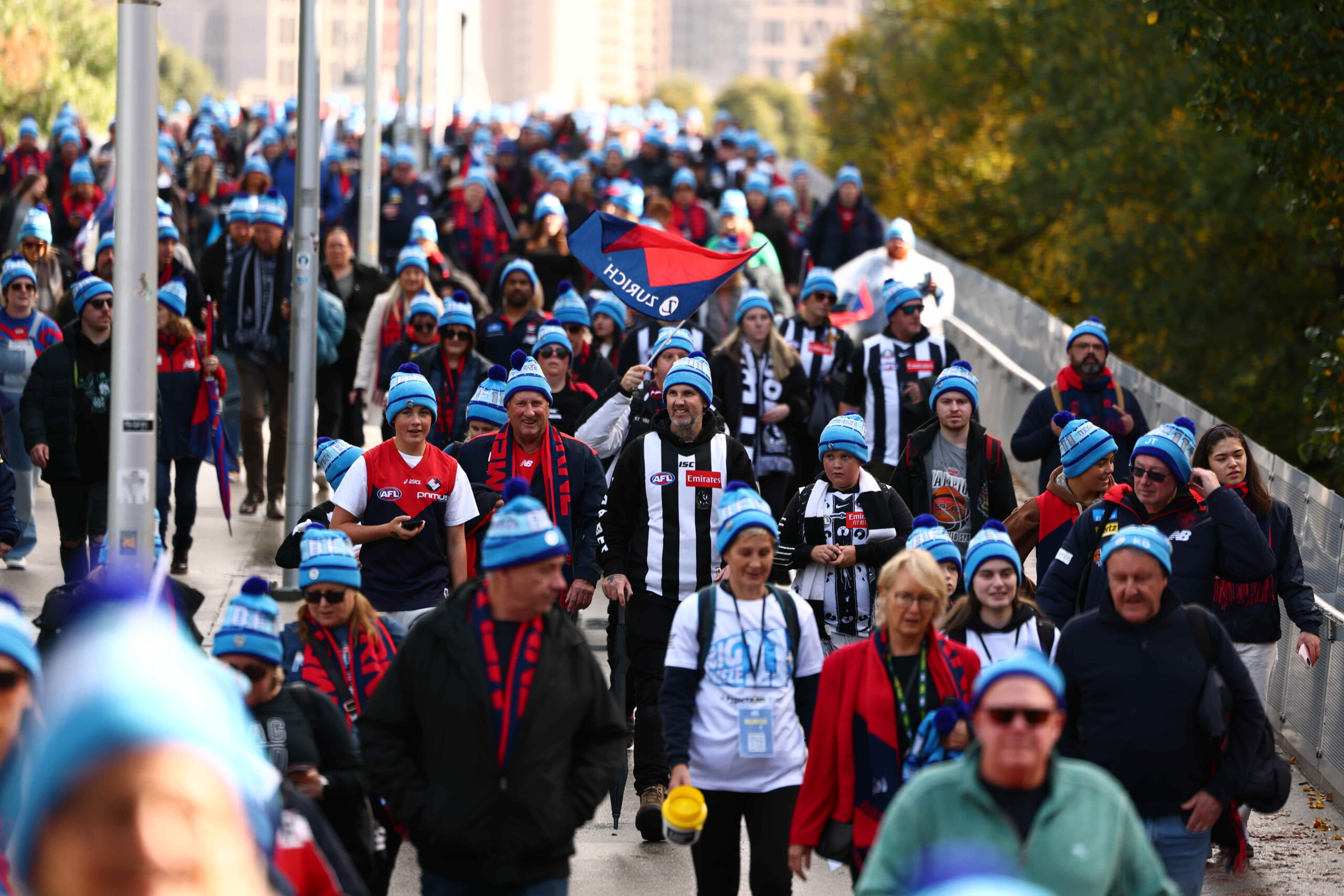
About Fightmnd
FightMND was established in 2014 by Neale Daniher AO, Pat Cunningham and the late Dr Ian Davis. We are a founder led organisation with a vision of a world free from motor neurone disease (MND). FightMND works to raise awareness and fund vital research to improve the quality of life and find treatments and, one day, a cure for those living with MND.
Since 2014, FightMND has invested more than $117 million into MND research and care projects supporting Australian’s living with MND. This includes 15 clinical trials for Australian patients and 34 drug development projects.
Our Big Freeze 12 Partners
